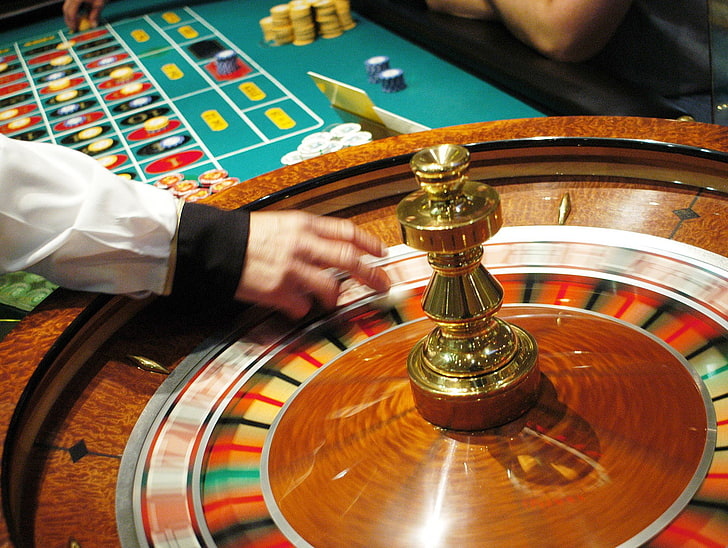Roulette, a game that has captured the hearts and minds of casino-goers for centuries, is a thrilling and unpredictable wheel of chance. Whether you’re a seasoned gambler or a curious novice, the spinning wheel and the anticipation it brings offer an unparalleled excitement that is hard to resist. In this article, we delve into the world of roulette, exploring its origins, the mechanics of the game, and the strategies that players employ in their quest for fortune.
The origins of roulette can be traced back to 17th-century France, where Blaise Pascal, a renowned mathematician and inventor, first introduced the concept of a spinning wheel. It wasn’t until the 18th century, however, that the modern version of the game took shape, thanks to the French brothers Louis and François Blanc. They introduced the single-zero wheel, which significantly increased the odds in favor of the players and became the prevalent version played in Europe.
The roulette wheel consists of numbered pockets, alternating between red and black, with the additional green pocket reserved for the number zero (and double zero in the American version). The croupier, or dealer, spins the wheel in one direction and releases a small ball in the opposite direction. As the wheel loses momentum, the ball eventually settles into one of the pockets, determining the winning number and color.
Roulette offers a wide variety of betting options, each with its own set of odds and potential payout. Players can choose to bet on a specific number, a combination of numbers, the color of the pocket, or even whether the winning number will be odd or even. The thrill of roulette lies in the risk and reward associated with these different betting choices.
While roulette is often seen as a game of pure chance, many players have devised strategies in an attempt to gain an edge over the house. One popular strategy is the Martingale system, where players double their bet after each loss, with the aim of recouping their losses when they eventually win. Another strategy is the Fibonacci sequence, where players increase their bets according to the Fibonacci sequence (0, 1, 1, 2, 3, 5, 8, etc.) in an effort to recover previous losses.
However, it’s important to note that no strategy can guarantee consistent winnings in roulette. The outcome of each spin is entirely independent and unaffected by previous results, making it impossible to predict with certainty where the ball will land. Nonetheless, strategies can add an extra layer of excitement and engagement to the game, allowing players to develop their own approach and enjoy the thrill of strategizing alongside chance.
The popularity of roulette has transcended traditional brick-and-mortar casinos and has found its place in the online gambling world as well. With the rise of online casinos, players can now experience the excitement of roulette from the comfort of their own homes. The virtual roulette tables faithfully replicate the atmosphere of a land-based casino, complete with realistic graphics and sound effects, enhancing the immersive nature of the game.
In conclusion, roulette is a game that embodies the perfect blend of chance and strategy. Its rich history, simple yet elegant mechanics, and wide range of betting options make it a perennial favorite among gamblers. Whether you’re captivated by the spinning wheel, intrigued by the various betting choices, or enticed by the possibility of employing a winning strategy, roulette has something for everyone. So, take a seat at the table, place your bets, and let the wheel of fortune determine your destiny in this timeless game of chance.

Leave a Reply